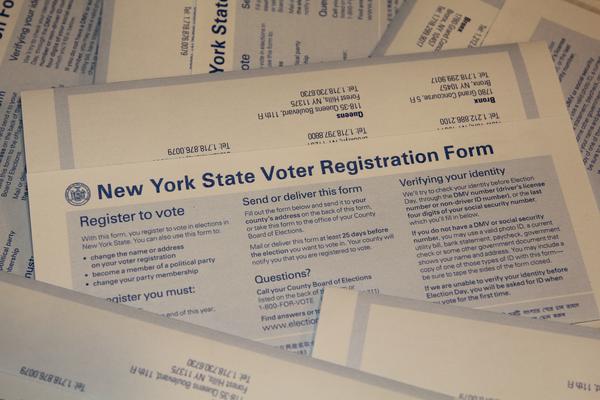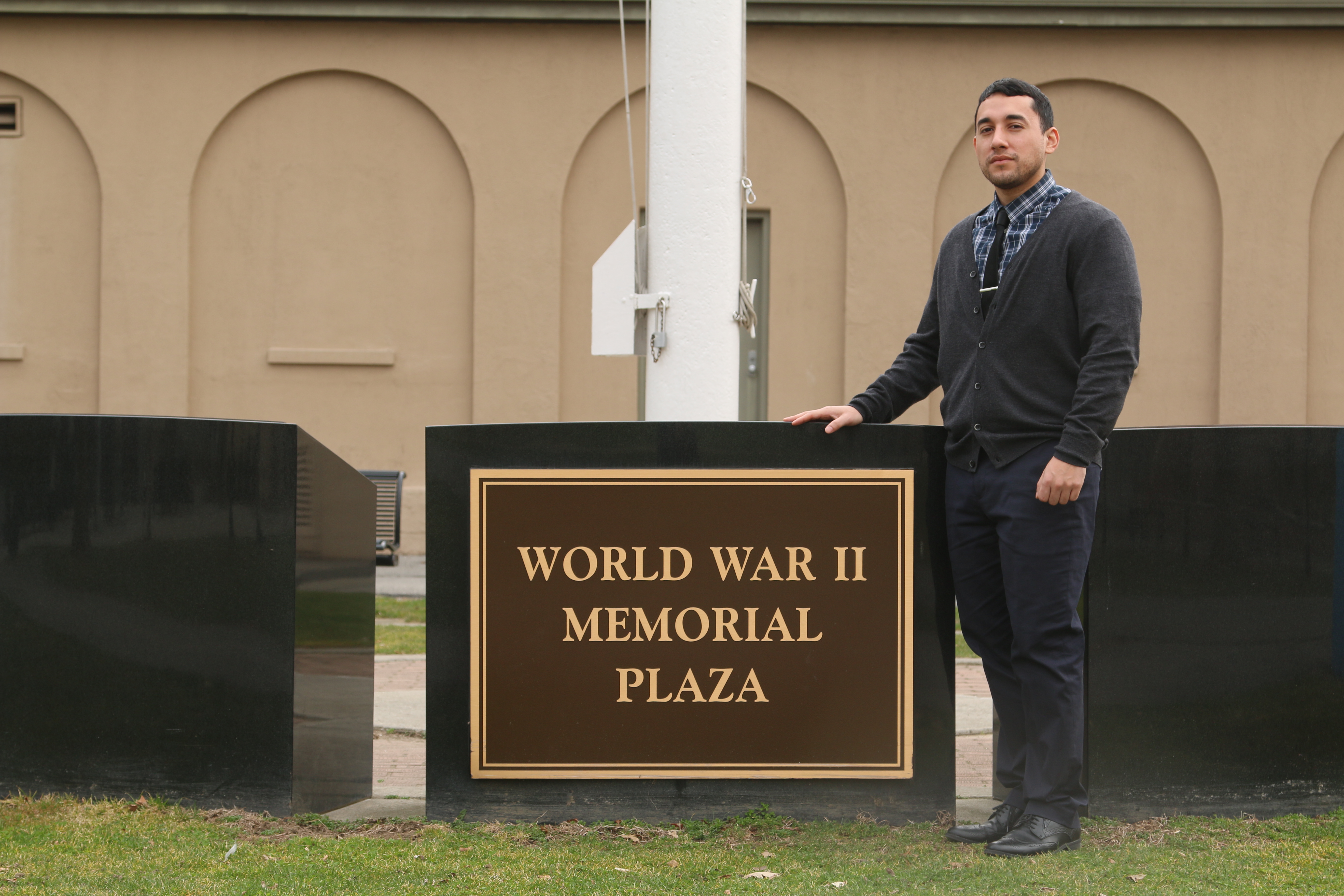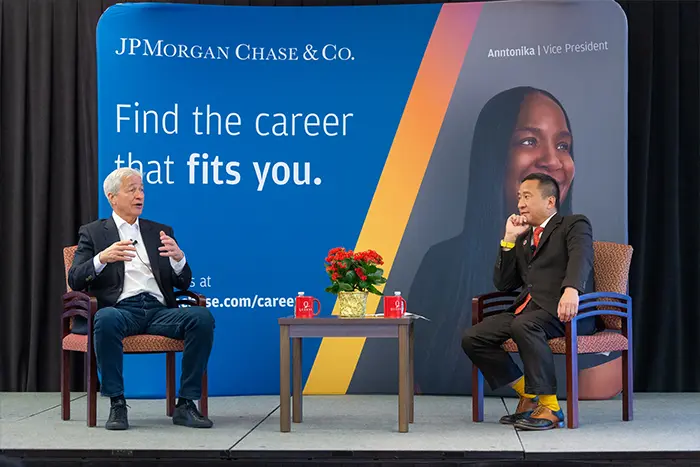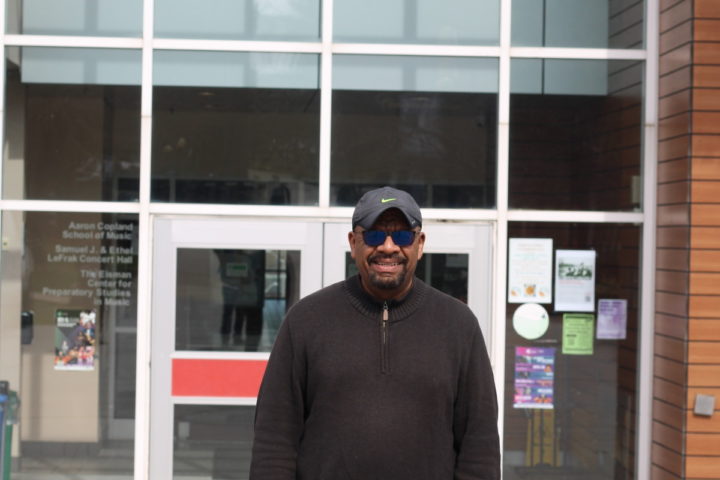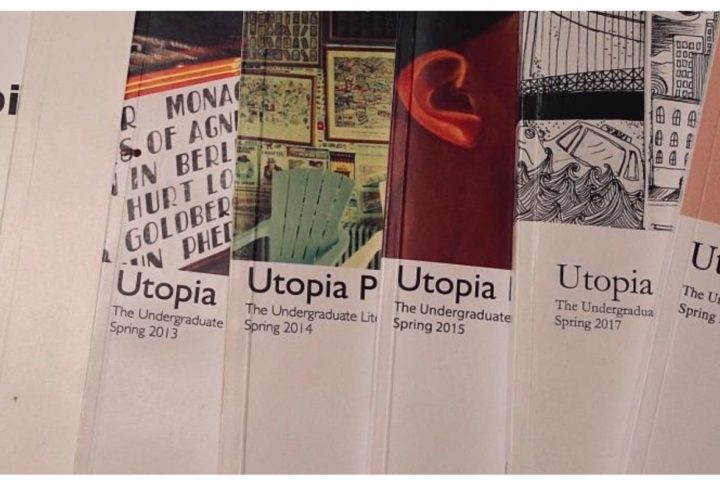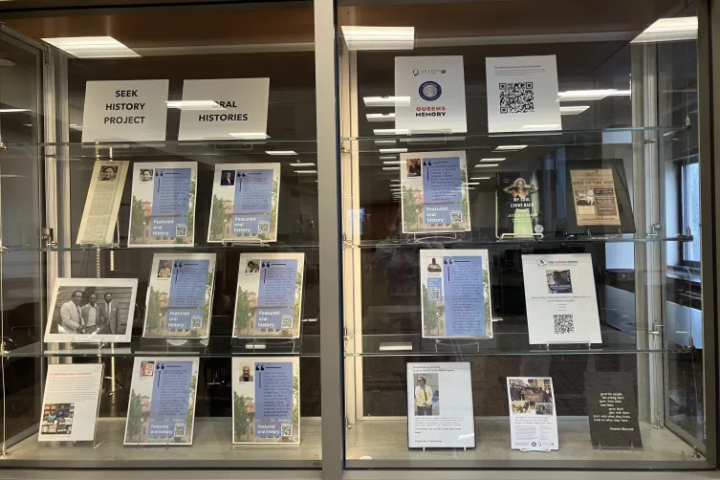The Queens College Department of Drama, Theatre and Dance – along with the Aaron Copland School of Music – debuted their production of Bertolt Brecht’s “The Three Penny Opera” on March 13 at The Kupferberg Center for the Arts.
As the audience filled in, the stage was already set with very industrial with rusty stairs looking like fire escapes, rusty platforms and dirty walls. A sign seen held the phrase “shut not your ears to the needy,” which foreshadowed the issue of poverty.
This reimagined production focused on New York City’s underworld of the 1980s, where dirty brothels, gangs and corrupted police ran rampant. From songs about the advantages of being in a position of wealth to the many corporate names above the stage, advantage is the center of the life of the underprivileged protagonist, Mack the Knife.
Brecht’s original German production took place in Victorian London, another era of inequality and corruption.
“Brecht and Weill always want to keep the audience on their toes so they are examining the greed in capitalist society but they don’t let anyone off the hook. Beggars are both users and the used,” director Kay Matschullat said.
The production points its finger at champions of capitalism who go at any lengths to get ahead.
The act of robbing a bank, according to Mack, is no different to a bank being constructed. In this world of bloodshed and profit, inquiries are made on the humanity of both the underworld and the upper class.
“With my character, I still had to be that really embracive person, but at the same time, it just gets the message across that you can get away everything. What Brecht was trying to say was don’t let injustice take over the world.” Andrés Caamal said, who played a police officer.
The stairs and platforms turned to different positions throughout the show, showing off different parts of this world, such as brothels, police stations, factories and businesses.
“The influence of those who took control of our city’s streets in the 1980s trickles down and defines our times” Matschullat says.
“Our production is more about the balance of power, and in 1980s is when there’s big changes in that. For example, in Manhattan, the whores owned the streets,” Michelle Shine, who plays a Madam, said.
The costumes were typical peasant attire, but rather, quasi-punk clothes. With his long red leather jacket, Mack stands out like a pseudo-king of the underprivileged. A henchman also made a statement with a gelled up Mohawk and tight, black leather clothes.
Overall, Matschullat succeeds in getting a reaction from the crowd. The production is humorous and colorful, but not quite what someone might expect in a show from a show that is, according to the cast, by and for the poor.
“Brecht’s work might make us all hesitate – and a bit uncomfortable – as we whistle one of Weill’s tunes, forcing us to recognize the hidden costs of comfort and reminding us we are always on a moral precipice” Matschullat said.
In the end, the actors learned to appreciate not only the play, but also its dire message.
“As an actor, I’ve learn to appreciate Brecht more, the whole thing was a discovery for the entire cast, none of us ever did a piece like this before,” Shine said.






